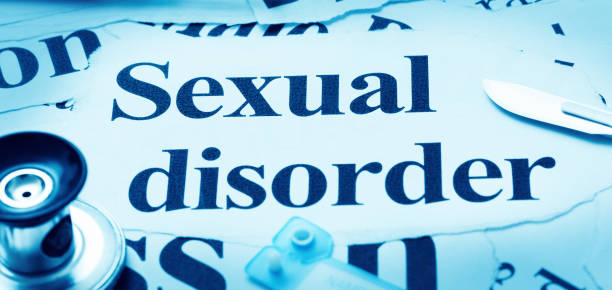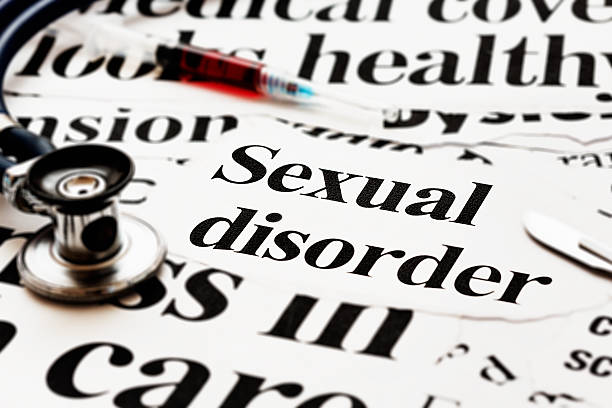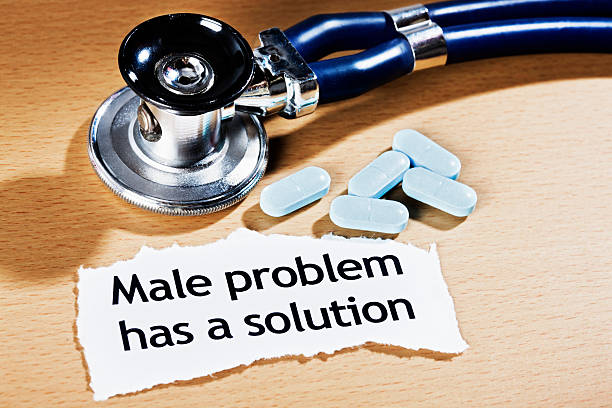Erectile dysfunction (ED) is commonly linked to older men, but it also affects many younger men in their 20s and 30s. If you are dealing with ED, you are not alone—this condition is more common than you might think. Experiencing ED can be frustrating, embarrassing, and even confusing, but the good news is that, in many cases, it is treatable. By understanding the possible causes—such as stress, poor circulation, hormonal imbalances, or lifestyle factors—you can take steps to address the issue.
Exploring treatment options, including lifestyle changes, medical interventions, and professional guidance, can help you regain confidence and improve your overall sexual health.
What Is Erectile Dysfunction?
Erectile dysfunction (ED) is the persistent inability to achieve or maintain an erection firm enough for sexual activity. While occasional difficulties with erections are normal, frequent or ongoing issues may indicate an underlying health concern that requires attention. ED can affect men of all ages and may be caused by physical, psychological, or lifestyle factors.

How Common Is ED in Younger Men?
Contrary to popular belief, erectile dysfunction is not just a problem for older men. Studies show that approximately 26% of men under 40 experience some degree of ED. In younger men, the condition is often linked to psychological factors such as stress, anxiety, and depression, as well as lifestyle choices like poor diet, lack of exercise, excessive alcohol consumption, and smoking.
Additionally, certain medical conditions, including diabetes, heart disease, and hormonal imbalances, can contribute to ED in younger men. Understanding the causes and seeking appropriate treatment can help improve both sexual performance and overall health.
Common Causes of Erectile Dysfunction in Younger Men
Erectile dysfunction (ED) in men under 40 can result from various physical, psychological, and lifestyle factors. Identifying the root cause is crucial for finding the most effective solution.
1. Stress and Anxiety
High levels of stress from work, relationships, or financial concerns can interfere with sexual performance. Performance anxiety, or the fear of not being able to perform sexually, is a common cause of ED. Stress increases cortisol levels, which can negatively affect testosterone production and restrict blood flow to the penis, making it difficult to achieve or maintain an erection.
2. Mental Health Conditions
Mental health plays a significant role in sexual function. Depression, anxiety, and other mental health disorders can lower libido and contribute to ED. Additionally, some antidepressants, particularly selective serotonin reuptake inhibitors (SSRIs), can cause sexual dysfunction as a side effect. Seeking therapy, stress management techniques, or medication adjustments with a healthcare provider can help improve both mental and sexual health.
3. Unhealthy Lifestyle Choices

Poor lifestyle habits can impact blood circulation, hormone levels, and overall sexual health. Key factors include:
- Smoking: Damages blood vessels, reducing blood flow to the penis.
- Excessive Alcohol Consumption: Can impair nerve function and lower testosterone levels.
- Recreational Drugs: Substances like marijuana, opioids, and stimulants can decrease sexual desire and performance.
- Lack of Exercise: Regular physical activity improves circulation, reduces stress, and supports healthy testosterone levels.
4. Low Testosterone Levels
Testosterone is essential for male sexual health. While low testosterone is more common in older men, younger men can also experience testosterone deficiency due to poor diet, lack of exercise, obesity, or medical conditions. Symptoms include reduced libido, fatigue, and difficulty achieving an erection.
5. Underlying Medical Conditions
Certain health conditions can lead to ED, even in younger men. These include:
- Diabetes: High blood sugar can damage nerves and blood vessels, leading to poor circulation.
- High Blood Pressure: Narrows arteries, restricting blood flow to the penis.
- Heart Disease: Affects blood circulation, which is crucial for erectile function.
- Obesity: Can cause hormonal imbalances and reduce blood flow.
6. Porn-Induced Erectile Dysfunction (PIED)
Excessive pornography consumption can lead to desensitization, making it harder to become aroused during real-life sexual encounters. Over time, this can lead to difficulty achieving or maintaining an erection with a partner. Reducing or eliminating porn use and focusing on real-life intimacy can help restore normal sexual function.
Addressing ED in Younger Men
The good news is that erectile dysfunction is often treatable. Making lifestyle changes, managing stress, improving mental health, and addressing any underlying medical conditions can significantly improve sexual function. If ED persists, seeking medical advice can help identify the best treatment options, including medication, therapy, or lifestyle modifications.consumption can help reset brain responses to natural sexual stimulation.

How to Treat and Prevent ED in Your 20s and 30s
The good news is that ED in younger men is often reversible. Here are some ways to improve your sexual health and regain confidence.
1. Manage Stress and Mental Health
Chronic stress and anxiety can contribute to ED. Try relaxation techniques such as:
- Meditation – Helps reduce stress and improve focus.
- Deep Breathing Exercises – Lowers anxiety and promotes relaxation.
- Exercise – Physical activity releases endorphins, which improve mood and reduce stress.
- Therapy – Speaking to a counselor or therapist can help manage anxiety and depression.
2. Improve Lifestyle Choices
Making healthier choices can improve your sexual performance. Consider:
- Quitting Smoking – Improves circulation and reduces ED risk.
- Reducing Alcohol Intake – Helps maintain nerve and hormonal function.
- Exercising Regularly – Cardiovascular activities like running and swimming boost blood flow and heart health.
- Eating a Healthy Diet – A diet rich in fruits, vegetables, lean proteins, and whole grains supports sexual function.
3. Check Your Hormone Levels
If you suspect low testosterone, consult a doctor for a blood test. Hormone imbalances can often be managed through lifestyle changes, supplements, or medical treatments.
4. Cut Back on Porn Use
If you think excessive pornography use is affecting your sex life, try:
- Reducing Screen Time – Spend less time watching porn and focus on real-life interactions.
- Practicing Mindful Intimacy – Engage more with your partner emotionally and physically.
- Taking a Break – Avoid pornography for a period and see if your sexual function improves.
5. Seek Medical Help
If lifestyle changes don’t improve your symptoms, talk to a healthcare professional. They may suggest:
- Medications like Viagra or Cialis – These can temporarily help with erections, but they don’t treat the underlying cause.
- Therapy for Psychological Causes – If performance anxiety or past trauma is a factor, therapy can be very effective.
- Testing for Underlying Conditions – Identifying and treating conditions like diabetes or heart disease can help resolve ED.
Final Thoughts
Experiencing erectile dysfunction in your 20s or 30s can be frustrating and even distressing, but the good news is that it is often treatable and reversible. Identifying the underlying cause—whether it’s stress, poor lifestyle habits, low testosterone, or an underlying medical condition—is the first step toward improvement.
By making healthy lifestyle changes, such as exercising regularly, maintaining a balanced diet, reducing stress, and improving sleep, you can naturally enhance your sexual health. Additionally, limiting alcohol consumption, quitting smoking, and addressing mental health concerns can have a significant impact on erectile function.
If ED persists despite these efforts, seeking professional help is essential. A healthcare provider can help diagnose any underlying medical conditions and recommend effective treatment options, including medication, therapy, or specialized interventions. With the right approach, you can regain confidence, improve your sexual performance, and enjoy a fulfilling sex life.

